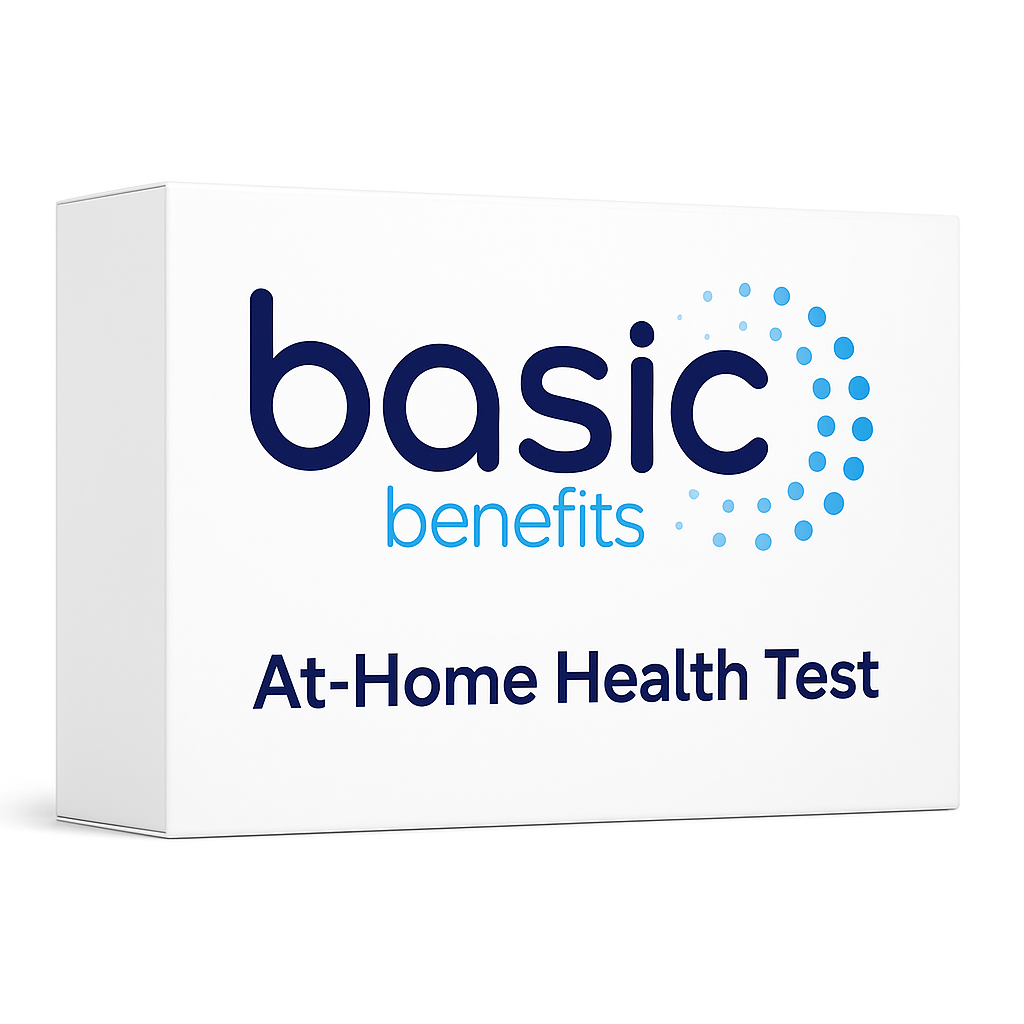Description
About the At Home Chlamydia & Gonorrhea Test
Screen for Chlamydia and Gonorrhea from the comfort of your home with the Basic Benefits at home test for chlamydia and gonorrhea.
It’s as easy as 1-2-3. No awkward conversations, no hassle.
This test can be done in 5 minutes or less. Use the kit instructions to collect your bio sample. Mail it to the lab using the pre-addressed stamped envelope (postage paid). Receive secure electronic results back in a matter of days. It’s that easy!
Included: 1 combo mail-in kit for Chlamydia test + Gonorrhea test
How Does an At Home Chlamydia & Gonorrhea Test Work?
It’s never been easier to test for chlamydia and gonorrhea at home. Here’s how it works:
- Order the at-home chlamydia and gonorrhea test from the Basic Benefits website. Shipping is free and the test will be sent in discreet packaging, so no one will know that you’ve ordered an STD test.
- The kit will contain everything you will need to perform the test. Follow the simple instructions to collect your sample—it only takes a few minutes.
- Use the prepaid packaging provided in your kit to ship your sample back to the lab for testing.
- Wait for your results. They’ll post to your secure account. A courtesy email notification will be sent to you as soon as ready.
- If you test positive for chlamydia and/or gonorrhea, schedule a free phone consultation with a healthcare provider. During this consultation, the healthcare provider will review your results, address your concerns, answer your questions, and discuss what steps you need to take next to protect your sexual health.
That’s all it takes to test for chlamydia and gonorrhea from the comfort of your own home!
Why Should You Take an At Home Chlamydia & Gonorrhea Test?
Chlamydia is the 2nd and Gonorrhea the 4th most common new sexually transmitted infection in U.S. Both are curable when detected early, which is why screening for these STDs is so important.
A self-administered screening isn’t a replacement for your doctor’s advice, but you can still get answers from the comfort of your home with our test kit.
Using an at-home Chlamydia or at-home Gonorrhea test kit will help you determine what is causing your symptoms in no time at all. Not only can you get ahead of your treatment plan, but you can also gain some peace of mind in the process.
Even if you aren’t experiencing Chlamydia or Gonorrhea symptoms, you could still be at risk. Testing yourself as soon as you suspect that you may have an STD of any kind could prevent a wide range of problems later on.
Getting tested at your doctor’s office could be pricey, and our at-home tests are both easy and affordable. Testing at a doctor’s office is also inconvenient since you will have to make time to go to the appointment. Most importantly, self-administered test kits put YOU in control of the decisions that greatly affect your health.
If you think you may have Chlamydia or Gonorrhea, our easy-to-use at home test kits can help you address your symptoms as soon as possible.
Who should get tested for Chlamydia and Gonorrhea?
The Centers for Disease Control and Prevention (CDC) advise every sexually active adult to get tested for chlamydia and gonorrhea at least once a year. But if you engage in high-risk activities, such as having unprotected sex, it’s best to get tested more frequently.
You should also get tested for chlamydia or gonorrhea if you are exhibiting symptoms of either STD or believe you may have been exposed to either STD.
When should you get tested for Chlamydia or Gonorrhea?
If you believe you have been exposed to chlamydia or gonorrhea—or if you have had unprotected sex—it’s important to know when to get tested for these STDs.
Both chlamydia and gonorrhea will not be detectable in your system immediately after exposure. It can take up to two weeks for gonorrhea to be detectable and up to three weeks for chlamydia to be detectable. For this reason, it’s best to wait at least three weeks after your initial exposure to get tested.
If you take a test within the first three weeks, it may be too early to detect either STD, which means your results may not be accurate. If you test negative within this timeframe, it’s best to get retested after the three week period is over to confirm your results.



Reviews
There are no reviews yet.